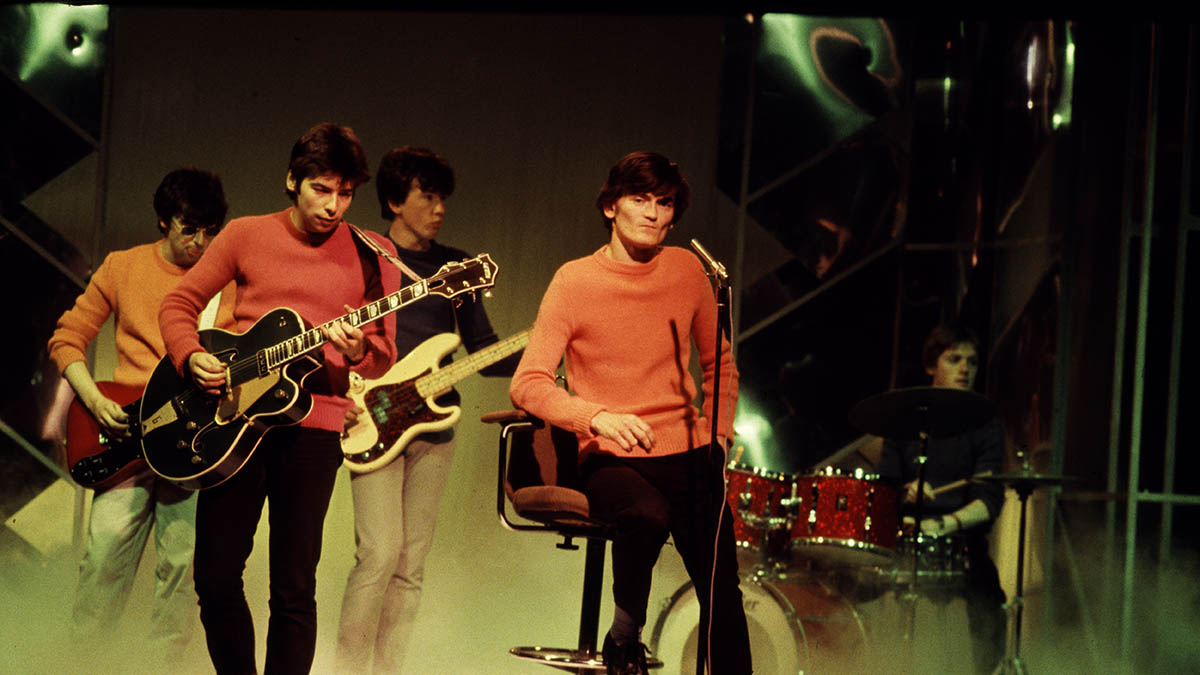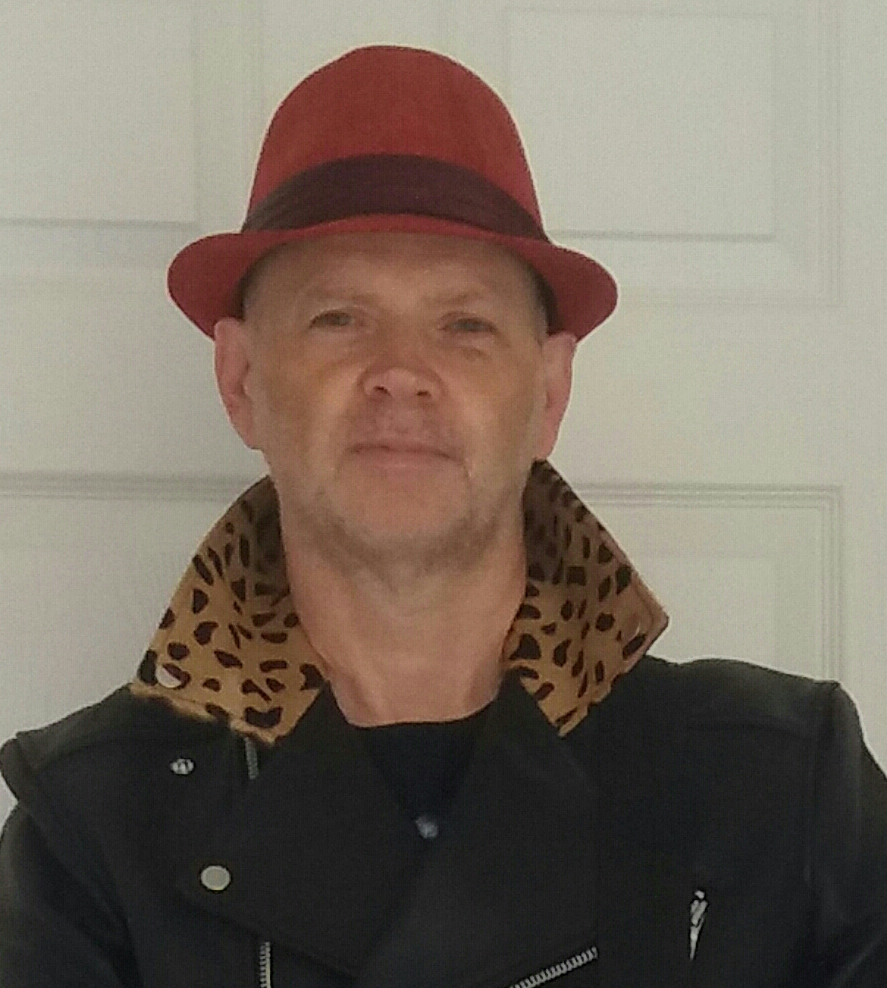“I played a Japanese Les Paul copy on Teenage Kicks but, ironically, I still think it’s the best sound I ever got on record”: The Undertones’ Damian O’Neill looks back on the making of the band’s defining anthem – and the lost classic that followed
The Undertones’ out-of-left-field 1981 album, Positive Touch, was an about turn for the Northern Irish rockers, after Teenage Kicks gave a generation an anthem to rally to. This is its story

When the Undertones released their third album, Positive Touch, in 1981, it marked a distinct change in direction for the Northern Irish punks. They broke through with the all-time punk classic, Teenage Kicks in 1978, followed by a string of hits and two albums that were very much in tune with the rough-and-ready punk ethos of the era.
The Undertones always had strong pop sensibilities, but Positive Touch pushed those elements to the forefront – with an overt ’60s influence in the mix – and is now viewed as something of a lost classic. The Undertones are still active as a band, touring regularly with all of the original lineup still intact, save for the substitution of Paul McLoone for original vocalist Feargal Sharkey, who left the band in 1983.
Damian O’Neill, the band’s lead guitarist, has released a number of solo and collaborative albums since 2000, and is now promoting his recent, largely instrumental solo album, An Crann.
Positive Touch was a substantial stylistic shift for the band. Was that deliberate or just a natural evolution?
“We’d just signed a big, new deal with EMI Records after leaving Sire and we thought this album was going to do really well. I think we thought it was almost like a more ‘grown-up’ record that was going to propel us to another level. Unfortunately it didn’t, sales-wise. [Laughs]
When John started writing, the Gretsch sound really affected what he was coming up with
“We didn’t deliberately say we weren’t going to write songs like My Perfect Cousin any more; it was partly a product of what we were listening to at the time – bands like the Teardrop Explodes and Dexys Midnight Runners, who I particularly adored. Another band that seemed to set us off on a different path was Orange Juice, who supported us on a U.K. tour.
“We really loved the sound they were getting from their Gretsch guitars, which prompted me and my brother, John, to find some Gretsches. We actually got a great deal and bought three old Gretsches for £1,000 (approx. $1,400) in a second-hand music store – a Country Gentleman, a Duo Jet and a Chet Atkins. Imagine how much you’d pay now for those three! There wasn’t any real interest in Gretsch around 1980 in the U.K., though. When John started writing, the Gretsch sound really affected what he was coming up with.”
All the latest guitar news, interviews, lessons, reviews, deals and more, direct to your inbox!
Was the whole band looking to change direction or was it driven by the songwriting?
“We all wanted to change. I don’t ever remember any discussions about our direction. We were all enthusiastic about it and thought it was definitely the direction we should be going in.”
Did the songwriting process differ for Positive Touch?
“I think that was a problem – for the first two albums we had all the songs written and it was just a matter of knocking them out when it came to recording them, but by this record, the writing had become a bit of a struggle, with us coming up with songs in the studio as we didn’t have enough material. I think you can tell that from listening to the album.
“Life’s Too Easy is a perfect example where we had three songs that we welded together with everyone’s ideas, but I think maybe we should have just dropped that. Previously, John would have brought a lot of his songs in quite fully formed and we’d all contribute to the arrangement.”
Was it always your intention to add extra instruments?
“The Dexys influence was what made us think about using the brass players, but once we had them in the studio we just thought that since we were paying them anyway, we could get them on a few more tracks.”
There is quite a strong Monkees feel about Crisis of Mine.
“That riff? Yeah, I guess so. I think there’s also some Love in there as well. I was listening to the Seeds, the Standells and the Left Banke a lot prior to recording Positive Touch. When we started off, we were into the ’60s R&B like the Stones and Them and the MC5 – particularly the Back in the USA album. I was also a huge fan of Dr. Feelgood and Eddie and the Hotrods.
“When punk came in, we basically just sped up all our songs. I think the MC5 were also an influence on Positive Touch, where John and I worked out a few dual-guitar things, where we’d play different parts that kind of worked off each other in the way that Wayne Kramer and Fred ‘Sonic’ Smith would do.”
How were you tracking down the music you were discovering back in the early ’70s?
“It was very much a case of reading the weekly music papers, seeing something that sounded interesting then sending off for it by mail order. It was hard to get a lot of the music in Northern Ireland. We also had a good friend who was quite rich – he was a doctor’s son – and he’d buy all these amazing albums and let us tape them, like the Doors, the Stooges and the Nuggets compilation albums. I think it made finding music more exciting as it felt like nobody else in the world knew who they were.”
We also had a good friend who was quite rich – he was a doctor’s son – and he’d buy all these amazing albums and let us tape them, like the Doors, the Stooges and the Nuggets compilation albums
How did the guitar parts divide themselves? Were you always the lead player and John the rhythm?
“Before Positive Touch I guess I did most of the solos, but we’d both play hooks and things like that. Johnny Thunders was one of my heroes and he was always an influence on my solos. I think Positive Touch saw us divide the responsibilities between us for solos.”
Did you all go out and spend a lot on gear when the first success came in and the money started to improve?
“Yeah, we went out and bought real Les Pauls. I played a Japanese CSL Les Paul copy on Teenage Kicks but, ironically, I still think it’s the best sound I ever got on a record – I never equaled it. [Laughs] It probably cost less than £100 in 1976 when I bought it. I’ve still got it; maybe I should pull it out and use it on a few songs.”
How did you view the album at the time? Were you happy with it?
“Yes. We thought it was a great pop record and we were really pleased with the way it turned out.”
How about now, looking back at it?
“I think we tried to be a little bit more sophisticated, but there are a few songs I think were a bit patchy. I think the production also lets it down a bit; it’s a little flat and small-sounding. Roger Bechirian had produced our first two albums, but I don’t think he did us any favors with his work on Positive Touch.
“We always had total control over who would produce our records; he did a good job for the first two albums, but we did have doubts at the time over whether to use him or not. We had a band vote and he got in by the skin of his teeth. [Laughs]
“I still think it stands up well overall. It was a band trying to find its feet and it had courage; we were breaking free from our past, and of course, that doesn’t always work, but we still do some of the songs live. Sin of Pride, our fourth album, is the one I have problems with, looking back.”
With the songs – the arrangements in particular – getting a little more complex, did it present issues playing them live?
“No issues, really. I played keyboards on some of the songs, and we also took the brass section out with us as we were making decent money, which was great because we got them to add brass to some of the older songs that didn’t have it.”
Was there a lot recorded that you didn’t use?
“No – nothing, really. Years later, though, when we had the album digitized, there was an extra instrumental track on there that none of us had any memories of. It was kind of good, but I don’t think it’ll ever see the light of day.”

The first album was a really happy, upbeat, joyous explosion of catchy instant classics, whereas Positive Touch doesn’t have the same optimistic vibe. Is the difference just the passing of a few years, the maturing of the band or a sense of changing perspectives on what the whole success thing was really like once it hit for the band?
“I think you’re right; there is maybe a bit of sadness about the record even though it is quite poppy. I think we were all a bit unsure about things musically and there was a lot of tension in the air in Northern Ireland with the Troubles, the hunger strikes, etc. – 1981 in particular was a bad year – so it was a different time. We were living in it, and you can’t really ignore it.”
I think we were all a bit unsure about things musically and there was a lot of tension in the air in Northern Ireland with the Troubles, the hunger strikes... it was a different time. We were living in it, and you can’t really ignore it
What’s coming up for you and the band?
“We’re still touring around the world, and we still play a few songs off Positive Touch in the set, so they’ve definitely stood the test of time for us. I’m also going to be going out to promote my new solo album, so there’s plenty happening.
“I would say that I never thought, way back in 1978 when we had the first hit, that I’d still be talking about music over 40 years later. I feel very lucky to have been able to have a career doing what I love.”
- The Undertones tour the UK and Ireland in October and November. See the Undertones for dates and ticket details.
Mark is a freelance writer with particular expertise in the fields of ‘70s glam, punk, rockabilly and classic ‘50s rock and roll. He sings and plays guitar in his own musical project, Star Studded Sham, which has been described as sounding like the hits of T. Rex and Slade as played by Johnny Thunders. He had several indie hits with his band, Private Sector and has worked with a host of UK punk luminaries. Mark also presents themed radio shows for Generating Steam Heat. He has just completed his first novel, The Bulletproof Truth, and is currently working on the sequel.

